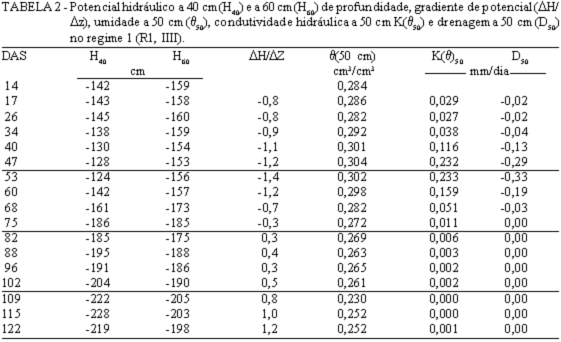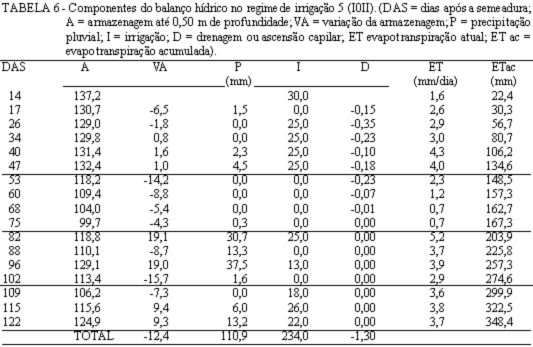The objective of this paper was to identify specific growth stages of the common bean crop at which the plant is less sensitive to water stress, in which irrigation could be omitted without significant decrease in evapotranspiration, in order to better define irrigation management practices for farmers. The field experiment was conducted at "La Tola" University Experiment Station, Tumbaco, Pichincha, Ecuador, on a sandy loam soil (Typic Haplustoll), the climate being tempered and dry (mean air temperatura 16ºC and mean relative humidity, 74%) and 123 mm of rain-fall were recorded during the cropping period (July to November, 1994). Seven irrigation regimes were used, including normal watering, full stress, tradicional practice, single stress at vegetation, at flowering, at yield formation and at ripening. Irrigation treatments were started after uniform germination and crop establishment. Soil moisture was monitored with neutron probes down to the 0.50 m depth, 24 hours before and after each irrigation. The actual evapotranspiration (ETa) of the crop was estimated by the water-balance technique. The yield formation stage was the most sensitive to moisture stress, in wich crop water use efficiency (0.46 kg/m3) was the lowest.
water use efficiency; common bean; Phaseolus vulgaris; water balance; neutron probe









